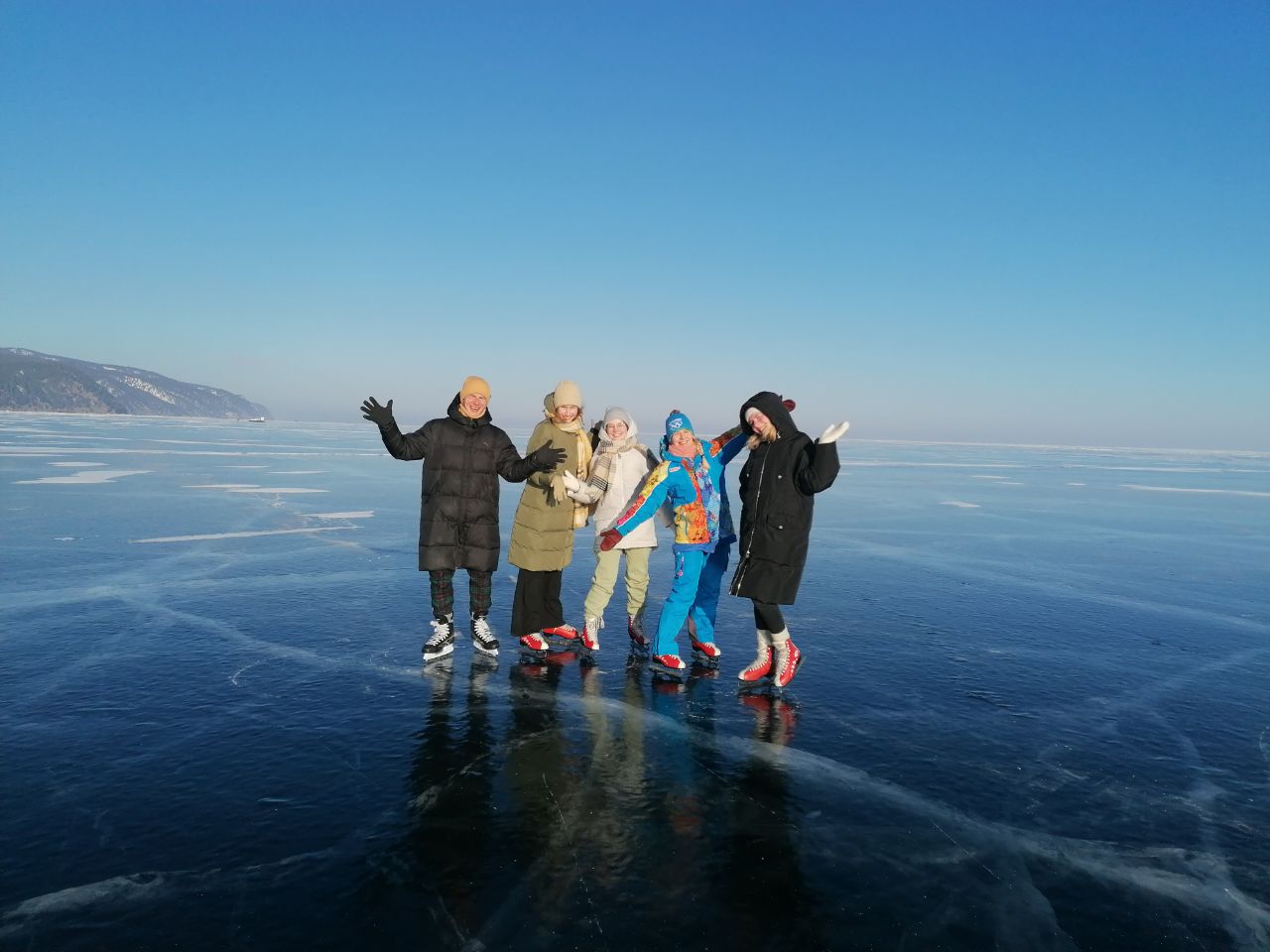Student internship ‘Water management and conservation of Lake Baikal’

February – March 2023
During time at a university it is crucial not only to gain theoretical knowledge, but also to find out how it works in practice, to communicate with employees of relevant organizations and local residents, to share ideas in an informal atmosphere, and to make up your own view of the subject you are studying.
The Lake Baikal Foundation organizes field trips to Lake Baikal for students of different specializations: managers, environmentalists, economists, regional scientists, lawyers, and other interested groups.
Topics that can be included into the internship are:
- the origin, characteristics, and features of the lake and its management;
- natural resources of the region, biodiversity, and economic potential;
- the status of the lake as a UNESCO Natural World Heritage Site;
- the standard of living of the local population and their employment;
- the human impact on the lake;
- tourism, including overtourism and sustainable tourism;
- lake pollution to the lake and solutions to this problem;
- waste management;
- environmental projects of NGOs and CSR strategies of businesses;
- impacts of climate change on the lake and its inhabitants;
- water quality monitoring;
- conflicts of interest in the management of the Baikal natural area and Lake Baikal;
- governmental documents and programmes for the conservation of Lake Baikal;
- sustainable management of lakes and natural areas.
The internship programme in the Irkutsk region may include a visit to:
- Limnological Institute of the Siberian Branch of the Russian Academy of Sciences;
- the FGBI “Western Baikal protected areas”;
- Research Institute of Biology at Irkutsk State University;
- Pribaikalsky National Park;
- Bottled water production plant;
- UNESCO water resources department of Irkutsk State University;
- Hydroelectric power station of Irkutsk city;
- Baikal museum of the Siberian Branch of the Russian Academy of Sciences;
- as well as excursions around the lake, road trips, ice-skating, and mountain climbing;
- and many other things, depending on your aims and wishes.
All visits are followed by a discussion of the role of the organization in the region’s economy and their involvement in the conservation of the unique natural site, as well as an analysis of scientific articles and regulations on the subject. In addition, students may be given assignments to work on a group project.
Results of the work:
From 11 to 17 February 2023 the Foundation organized an internship for the 3rd year bachelor students of the Global Challenges Management program at the Russian Presidential Academy of National Economy and Public Administration (RANEPA). The students and the administration of the university were satisfied.
«Our group had the opportunity to see the UNESCO World Heritage Site – Lake Baikal, which was my long-held dream, and get to know the issues of sustainable management and use of its resources. Moreover, we visited relevant organizations – the Research Institute of Biology, the UNESCO Chair of Water Resources at the Irkutsk State University, Irkutsk Hydroelectric Power Station, and the «Legend of Baikal» – bottled water production plant – to learn how to develop the regions around the lake efficiently. This experience helped us to form our own recommendations on sustainable management of the lake, which I am sure can be applied to other water bodies as well. For me, as an eco-educator, this practice highlighted important thoughts, which I will try to convey to people. The main one is the law formulated by Barry Commoner – ‘Nature knows best’. This provided a basis for understanding how to interact with nature in the age of industrial development – not to get in its way. The moment to avoid global change has passed. Now it is important to adapt to circumstances, not to make things worse, first and foremost for us. This thesis we, as managers of global challenges, will carry to the masses and try to implement it in the production processes!».
Eva Nazarova, the 3rd year student of the Global Challenge Management programme

